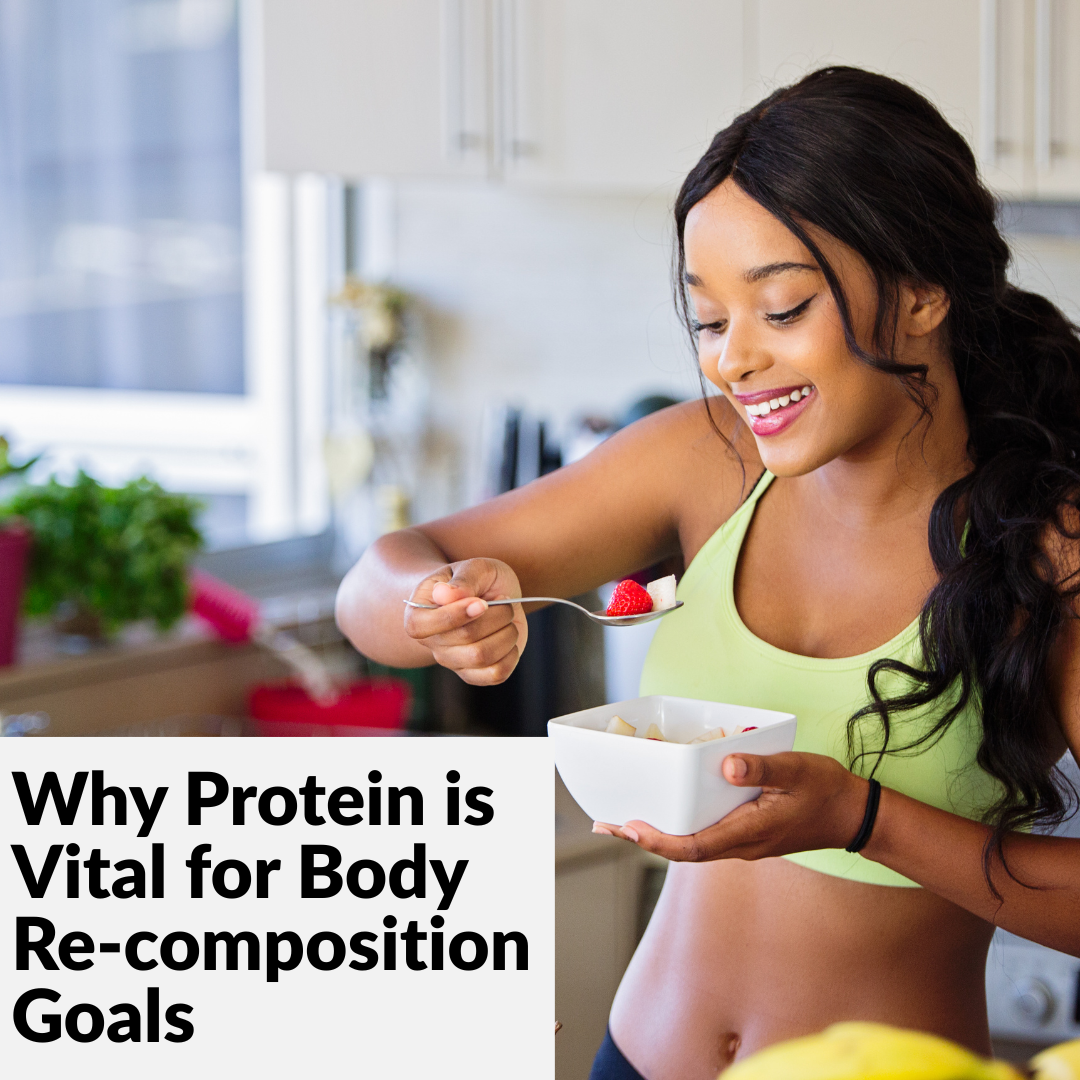
When you’re working toward body re-composition—building lean muscle while losing body fat—your nutrition strategy can make or break your results. And if there’s one nutrient that deserves the spotlight, it’s protein. Whether you’re lifting heavy, running trails, or simply trying to look and feel stronger, getting enough protein isn’t just a “nice to have”—it’s a non-negotiable. Here’s why.
1. Protein Supports Lean Muscle Growth
Body re-composition is all about improving your ratio of muscle to fat. Resistance training provides the stimulus to build muscle, but protein provides the building blocks.
Protein is made up of amino acids—tiny compounds your body uses to repair and grow muscle tissue after workouts. Without enough protein, your body simply can’t recover or build new muscle effectively, even if your training is on point.
💡 Tip: Aim for a protein source at every meal (think chicken, fish, eggs, Greek yogurt, tofu, or protein powder) to keep a steady stream of amino acids available.
2. Protein Protects Muscle During Fat Loss
When you’re in a calorie deficit to shed fat, your body looks for energy wherever it can get it—including breaking down muscle tissue.
Higher protein intake helps prevent this by signaling your body to preserve lean mass, so the majority of your weight loss comes from fat—not hard-earned muscle.
💡 Science snapshot: Research consistently shows that people who eat more protein during fat loss retain significantly more lean muscle, even with the same calorie intake.
3. Protein Keeps You Fuller for Longer
One of the biggest challenges with body re-composition is sticking to a calorie target without feeling deprived. Protein is the most satiating macronutrient, meaning it helps you feel full and satisfied after meals.
This can naturally reduce snacking and overeating, making it easier to stay in a slight calorie deficit without feeling like you’re constantly battling hunger.
4. Protein Boosts Your Metabolism
Your body actually burns calories digesting food—a concept called the thermic effect of food (TEF). Protein has the highest TEF of all the macronutrients, requiring roughly 20–30% of its calories to be burned just to digest and metabolize it. Translation? Eating more protein slightly increases your daily calorie burn, giving you a small but meaningful edge for fat loss.
How Much Protein Do You Really Need?
For most people chasing body re-composition, a good target is around:
-
0.7–1 gram of protein per pound of body weight (1.6–2.2 g/kg) per day.
-
Spread across 3–5 meals/snacks for best absorption and muscle repair.
Example: A 150-lb (68 kg) woman would aim for roughly 105–150 grams of protein per day.
Easy Ways to Add More Protein
-
Breakfast: Greek yogurt parfait with berries and a scoop of protein powder
-
Lunch: Chicken or turkey wraps with whole-grain tortillas
-
Snack: Cottage cheese with fruit or a protein shake
-
Dinner: Salmon, lean beef, or tofu with veggies and quinoa
You can train hard and stay in a calorie deficit, but without enough protein, body re-composition will feel like an uphill battle. By prioritizing protein at every meal, you’ll build lean muscle, protect it during fat loss, stay fuller longer, and give your metabolism a slight boost—all key pieces of the re-composition puzzle.
Leave a Comment
You must be logged in to post a comment.
0 Comments